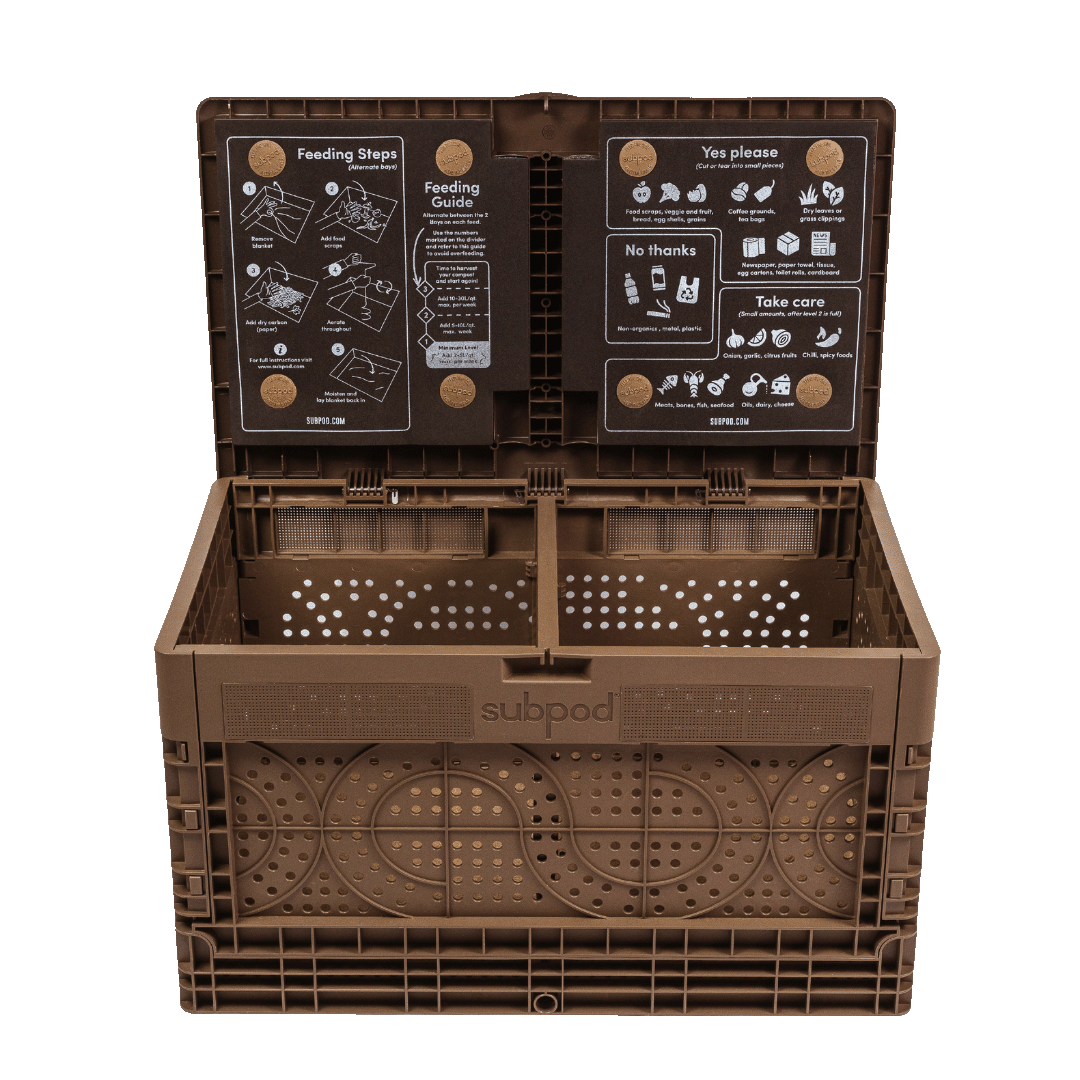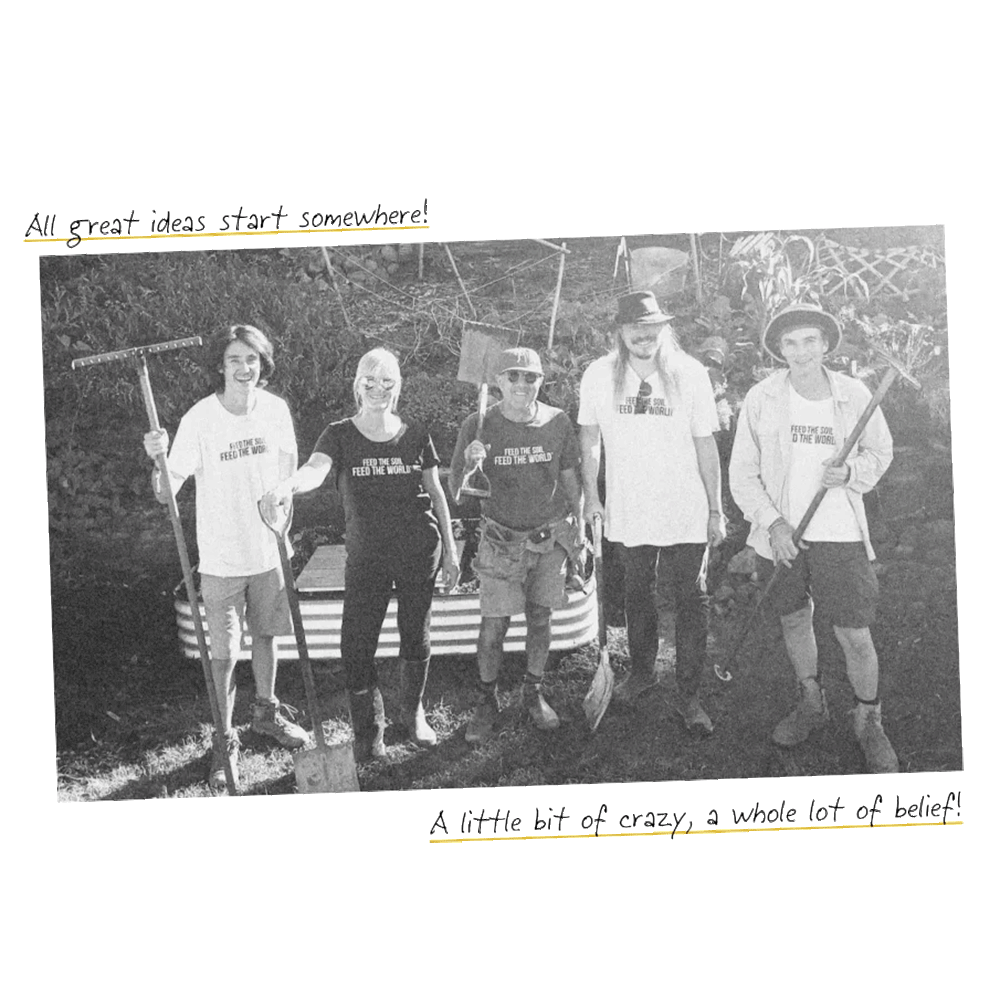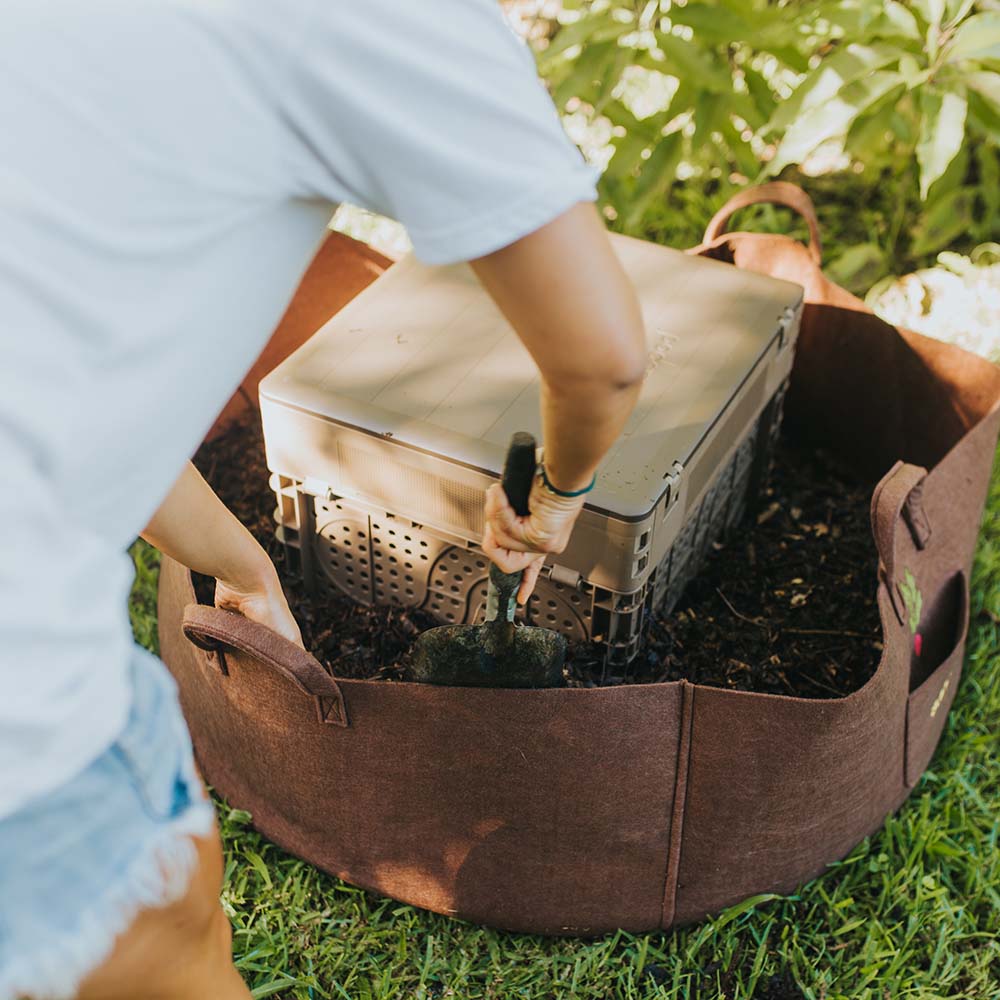We’re about to say something outrageous, but hear us out: Some good came from 2020.
Okay yes, for the most part, 2020 was tough on all of us. But it was also the year that saw us growing victory gardens again and coming together (while staying apart). Community mattered more to us last year than it has in a long time.
One community in particular has risen through the ashes of the dumpster fire that was 2020 (no offence, dumpster fires) – one that's trying to do away with dumpsters altogether.
If you haven't heard of Subpod yet, then hi! Subpod is an in-garden worm farm that turns your food waste into kickass compost. It's odourless, pest-proof and doubles as a funky seat.
Subpod launched early in 2020, with blissful ignorance of the storm ahead. We had a goal of getting 20,000 people composting in 2020, and against all COVID odds, we just squeaked past the victory line by Christmas.
But we don't want to talk about us. We want to tell you about those 20,000 people – the everyday people who've put their foot down against food waste, landfills and climate change.
Do you know how much food the average person throws out? According to The AJAE we throw out around 31% of our food each year. That's the equivalent of buying five bags of groceries at the store, and just dumping 2 in the parking lot. Every time you shop.
The average household produces about 10kg of organic waste every week, which adds up to around 3,500kg a year. But what happens to that waste?
Most of it gets sent straight to landfill, mixed in with old tyres, clothes, nappies and plastic bags. When organic waste tries to decompose in toxic conditions, it ferments, creating poisonous greenhouse gases like methane and CO2. Those gasses get released into the atmosphere, worsening climate change and the overall good vibes of our planet. Bummer, man.
So what happens when we compost our green waste?
We recycle all the nutrients in the food that never got a chance to feed us, for starters. Instead, it goes back into the soil to grow us new food, or support our trees and the animals that depend on them. It also never gets the chance to create greenhouse gasses, slicing your carbon footprint like a water bottle in one of those weird samurai sword demonstration videos.
So what difference does 20,000 people composting make? Turns out, a big one! Right now, the Subpod community is diverting 15,600 tonnes of food waste from landfill each year. That's the weight of 69 Statues of Liberty!
They’re also saving 11,000 tonnes of CO2 from being spewed into the atmosphere (a tad heavier than the Leaning Tower of Pisa's weight). Since gas is pretty light, think of it this way: All that CO2 could cover an area of more than 6,100 cubic meters – which would fill about 76 of these bad boys:
You might be thinking 'Alright, Mr. Knowitall, what does all this mean?'
It means that despite what you've been reading in the news, hearing on the TV, or worrying late at night – everyday people can make a difference. They already are! 20,000 people is such a small fraction of our world's population. Seriously, it looks like this: 0.0000026062.
If such a small number of people in the world can have such a giant impact, imagine the difference that 1% – or 10% of the world composting could make!
Real change starts with everyday people doing something small. You don't have to go vegan, give up your car or try to make so little trash it fits inside a jar. All those things are amazing, of course. They can just be a bit difficult for everyday people to do.
But anyone can compost.
Our ancestors composted before it even had a name – when feeding your waste back to the garden it came from was as normal as putting trash in the bin is for us. But landfills shouldn't be normal. Why would we pollute our planet needlessly when a solution as simple as composting is right there?
It's a new year, and though the fires of 2020 still rage on in some ways, Spring is coming. New life is ready to bloom, green and alive, in the most unlikely of places. We hope that one of those places will be in your backyard, in a garden that you nurture with (you guessed it) compost.
Ready to join the compost movement?
Check out our easy to use systems!





Leave a comment
This site is protected by hCaptcha and the hCaptcha Privacy Policy and Terms of Service apply.